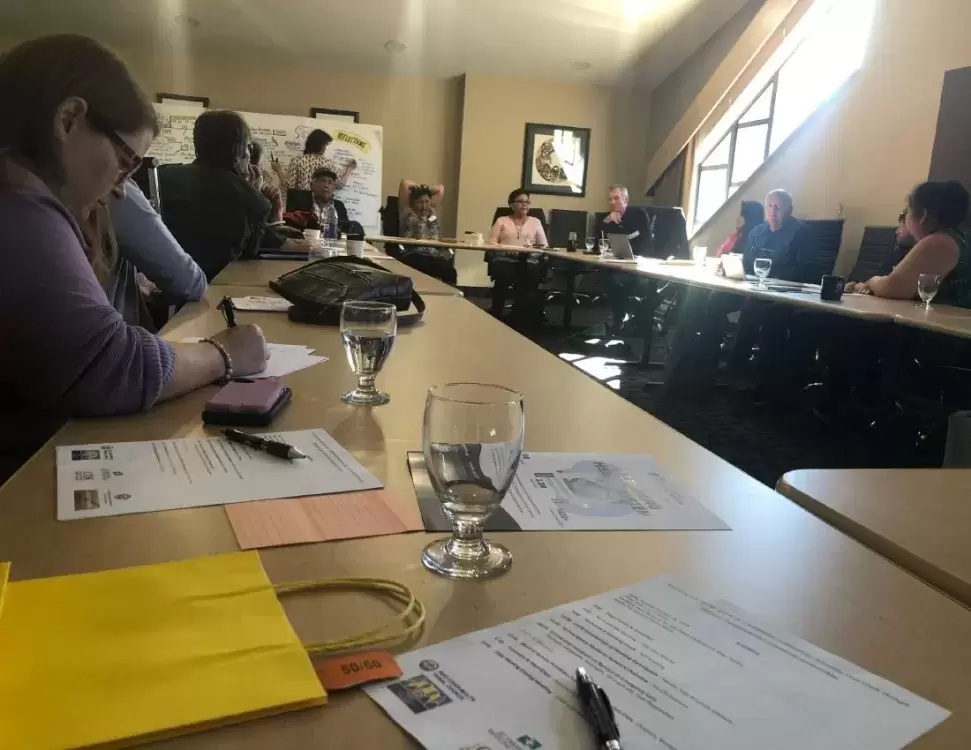Changes are coming to the way emergency care is delivered in some Nuu-chah-nulth communities.
But ironically, the COVID-19 pandemic has placed the majority of the project’s implementation details on hold.
For the past two years discussions had been staged on how to improve emergency care in four Nuu-chah-nulth communities: Kyuquot, Hesquiaht’s Hot Springs Cove, Ahousaht and Tla-o-qui-aht’s west coast settlements near Tofino.
Those talks spurred the creation of a project dubbed Kwiis hen niip, which translates into the word ‘Change’. Ka:'yu:'k't'h'/Che:k'tles7et'h' elder Christina Cox chose the name of the project.
The four-year project will be funded by the Canadian Institutes of Health Research (CIHR), the federal funding agency for health research.
In March initial funds for the program were released and Rebecca Lee was hired as the project manager. Lee also serves as the research manager of programs and strategic planning at the Indigenous Health Education Access Research Training (I-HEART) Centre in Vancouver.
Shortly after the Kwiis hen niip project was launched, the pandemic arrived in Canada. As a result, the ensuing stages, including proposed community meetings which would have been taking place now, have been put on hold.
“Because of COVID-19 we are delayed,” Lee said. “However, we are starting to reach out to health directors from the four communities to ask about community needs around emergency services.”
Lee believes the reasons why improvements are needed in the way emergency care is delivered to the Nuu-chah-nulth nations have been enhanced in recent weeks.
“The pandemic definitely highlights emergency needs in Indigenous communities and also the strength and resilience to provide services within community when people are limited in terms of leaving communities,” she said.
Prior to the creation of the Kwiis hen niip project, a needs assessment had been done to determine the current state of emergency care in the four Nuu-chah-nulth communities. That assessment found there were four priority areas which could benefit from improvement.
They were first responder support, patient transport, communications and community readiness.
“Each of the communities has different needs to emergency coverage,” Lee said. “And there’s a number of different issues.”
Due to their remoteness, all of the communities have transportation issues, especially when there is a need to transfer an individual to a hospital in Tofino.
“It’s often a very treacherous journey,” Lee said.
Lee added the need for change is reflected by the fact first responders from Nuu-chah-nulth communities at times lack proper training, supplies or funding to provide proper emergency services.
The main goal of the Kwiis hen niip project is to improve emergency medicine care in the four Nuu-chah-nulth communities.
But another goal is to have community engagement build solid relationships between communities, government, research institutions and organizations in order to create vital emergency medicine services.
“It’s very much a community-driven project,” Lee said.
She also said the main outcome which is desired is to have not only more effective but confident first responders, with access to remote help and speedy transportation when required. The hope is to deliver these methods with cultural safety and community bystander support.
“By providing appropriate care at the scene and by improving the timeliness of transfer when necessary, unnecessary adverse consequences will be avoided,” Lee said. “The project team will include community members to further develop knowledge, skills and capacity for implementing Indigenous research methods in integrated knowledge translation.”
When necessary, community members will be hired to support local initiatives.
While the Kwiis hen niip project is intended to benefit the four Nuu-chah-nulth nations, Lee thinks, if successful, the venture could be duplicated elsewhere.
“We believe that the methods we employ will be transferable to improving emergency medicine care in other remote Indigenous communities in Canada,” she said.
Some of the project partners include the Nuu-chah-nulth Tribal Council (NTC), First Nations Health Authority, Vancouver Island Health Authority, Heart and Stoke Foundation, Justice Institute of BC, BC Emergency Health Services and Telus Communications.
Lee would obviously prefer to be working full steam ahead with the Kwiis hen niip venture. And she’s uncertain when COVID-19 restrictions will be lifted in order to allow that to happen.
“It’s definitely frustrating,” Lee said of the pandemic, which interrupted work that would be happening now. “But we’re hoping to keep this project going.”
Following Lee’s hiring as project manager, one of the next steps in the project was to hire an NTC community-based project co-ordinator. That hiring has been delayed as have been the majority of plans that were expected to occur in the first year of the project, including the establishment of ethical and data agreements.
Sustainment of the project was also scheduled to begin in its first year. By the fourth year the goal was to have the system working smoothly enough for the transition from research project to a well-functioning program.







